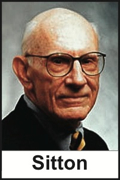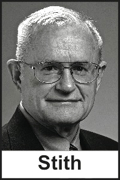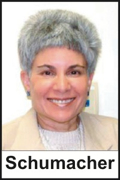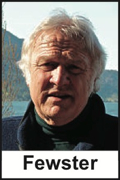Rascals case in brief
In the beginning, in 1989, more than 90 children at the Little Rascals Day Care Center in Edenton, North Carolina, accused a total of 20 adults with 429 instances of sexual abuse over a three-year period. It may have all begun with one parent’s complaint about punishment given her child.
Among the alleged perpetrators: the sheriff and mayor. But prosecutors would charge only Robin Byrum, Darlene Harris, Elizabeth “Betsy” Kelly, Robert “Bob” Kelly, Willard Scott Privott, Shelley Stone and Dawn Wilson – the Edenton 7.
Along with sodomy and beatings, allegations included a baby killed with a handgun, a child being hung upside down from a tree and being set on fire and countless other fantastic incidents involving spaceships, hot air balloons, pirate ships and trained sharks.
By the time prosecutors dropped the last charges in 1997, Little Rascals had become North Carolina’s longest and most costly criminal trial. Prosecutors kept defendants jailed in hopes at least one would turn against their supposed co-conspirators. Remarkably, none did. Another shameful record: Five defendants had to wait longer to face their accusers in court than anyone else in North Carolina history.
Between 1991 and 1997, Ofra Bikel produced three extraordinary episodes on the Little Rascals case for the PBS series “Frontline.” Although “Innocence Lost” did not deter prosecutors, it exposed their tactics and fostered nationwide skepticism and dismay.
With each passing year, the absurdity of the Little Rascals charges has become more obvious. But no admission of error has ever come from prosecutors, police, interviewers or parents. This site is devoted to the issues raised by this case.
On Facebook
Click for earlier Facebook posts archived on this site
Click to go to
Today’s random selection from the Little Rascals Day Care archives….
Click for earlier Facebook posts archived on this site
Click to go to
Today’s random selection from the Little Rascals Day Care archives….
Could N&O have thwarted ‘prosecutor gone wild’?
 March 18, 2013
March 18, 2013
“When I look back, I think my greatest mistake (was) my failure as editor of the News & Observer to make sure we had a top-notch investigative reporter on the Little Rascals case in Edenton.
“Our regional person was adequate as a regional correspondent, a full-time staffer, but he was not the person to see what was wrong with this case and to do the necessary digging to root it out.
“That prosecutor had gone wild, eaten up by ambition, I suppose, to hang these people, these people who operated the Little Rascals Day Care Center, no matter how.
“…All the kids talked about being borne through the air this way and that way and flying all over, and it was crazy stuff.
 “As it turned out, (the Edenton Seven were eventually released), but it wrecked their lives forever. And I still feel sorry about that, still feel sorry about it.
“As it turned out, (the Edenton Seven were eventually released), but it wrecked their lives forever. And I still feel sorry about that, still feel sorry about it.
“I think had we sent someone like Pat Stith down there, that would have been it.
“But see, at that time, Edenton already was a pretty far reach for the News & Observer…. (Our) pulling out of eastern North Carolina (to cut expenses) might have affected my thinking (about) whether we were really responsible for doing something about that miscarriage of justice.”
– From an interview with Claude Sitton, editor of the Raleigh News & Observer from 1968 to 1990 (Southern Oral History Program, Southern Historical Collection, UNC Chapel Hill, July 12, 2007)
‘Understanding and Assessing’ ritual-abuse mythology
May 28, 2012
How would Bruce A. Robinson, founder of the comprehensive and widely respected ReligiousTolerance.org, describe the credibility now given ritual abuse?
“I am unaware of any child psychologist or similar specialist who still believes ritual abuse happened in child care facilities. I think there is a consensus that repeated direct questioning of young children will get them to reveal stories about events that never happened. Over time, these stories often become ‘memories.’ ”
Mr. Robinson, meet Kathleen Coulborn Faller, professor in the School of Social Work at the University of Michigan.
As previously noted, Dr. Faller in “Understanding and Assessing Child Sexual Maltreatment” (second edition, 2003) identifies herself as a true believer. Here’s how she makes her case:
■ “Responses to allegations of ritual abuse have undergone a transformation in the last 10 years, so that any case… elicits great skepticism. In fact, it is no longer au courant to believe in the existence of ritual abuse.”
Au courant? Does she really consider scientific research into children’s testimony to be some kind of fad, like pet rocks?
■ “The vigor of the attack against ritual abuse… reinforces the belief of some professionals, myself included, that there is substance to ritual abuse….”
What!? And where are these other professionals?
■ “Ultimately the backlash… resulted in the reversal of some criminal convictions involving ritual abuse (New Jersey v. Michaels, 1994; North Carolina v. Kelly, 1995)… ”
In fact, these convictions were overthrown not because public and professional opinion had begun to shift, but because their many legal defects were obvious to appeals courts.
● ● ●
I’ve again asked Dr. Faller to respond.
‘Evidence too compelling to dismiss’? Really?
 Oct. 1, 2012
Oct. 1, 2012
“Since 1983, public and professional interest in maltreatment of young children in day care has increased dramatically. It was then that children first began disclosing allegations of sexual and ritual abuse in the McMartin preschool.
“Although accounts of children being terrorized during satanic rituals seemed bizarre and unbelievable, alarmingly similar allegations against child care facilities throughout the United States prompted public officials, educators and parents to more fully examine the phenomenon. The sheer number of reports and amount of information collected (for legal and therapeutic purposes) provided a rich data base for study.
“Children reporting ritual abuse (RA) have described ceremonial animal and human mutilation and sacrifice, live burial, sacrificial participation or witness, ingestion of human blood, feces, urine and semen, and death threats should they disclose the abuse.
“It should be noted that some doubt the existence of RA…. The prevailing literature since the McMartin case, however, demonstrates that researchers find the evidence too compelling to dismiss…. Perhaps the most reasoned yet sensitive approach to validation is neither unquestioned acceptance nor unequivocal denial, but critical judgment….”
– From “Variables and risk factors associated with child abuse in daycare settings” by Ruth B. Schumacher and Rebecca S. Carlson in Child Abuse & Neglect: The International Journal (September 1999)
Predictably, the references listed by Schumacher and Carlson include an old-school Who’s Who of bad science: e.g., Kathleen Coulborn Faller, David Finkelhor (misspelled “Finklehor”), and Susan J. Kelley (misspelled “Kelly”).
But the authors also cite skeptics Jeffrey S. Victor (“Satanic Panic”), David Bromley and Lee Coleman.
How can this be? How can Schumacher and Carlson have been exposed to such persuasive debunking, yet conclude that “neither unquestioned acceptance nor unequivocal denial” is called for?
Big Tobacco realized early on that instead of beating back every new attack on smoking’s health risks, it needed only to frame the issue as a continuing “controversy” with “two sides.” But what possible advantage accrues to social scientists who take that approach?
How one journal editor went very, very wrong
 Dec. 7, 2012
Dec. 7, 2012
Following up on Wednesday’s post:
Here’s how editor Gerry Fewster began his introduction to “In the Shadow of Satan: The Ritual Abuse of Children,” the still-unretracted 1990 special issue of the Journal of Child and Youth Care:
“Putting this issue together has been my most difficult Journal assignment…. It began as a fascinating prospect with little or no supportive documentation. As I discussed the concept with colleagues and friends the most unlikely doors began to open. Fragments of information – odd papers, crude and unfinished manuscripts, unsolicited telephone calls, personal revelations, and even photographs – began to appear….”
Dr. Fewster’s professional skepticism seems to have quickly yielded to those phantasmagoric “fragments of information.” He details an investigative process that….well, evaluate for yourself:
“Many times during the course of reading the material, I decided to quit. I found that I had neither the head nor the stomach for the task…. After spending many hours reading from the protective armor of the editorial role, I would feel physically ill. At first I attributed all of this to my reluctance to examine the depths of my own ‘shadow’ and urged myself on. Then, as my curiosity rekindled, I would shrink back in horror from the spectres of my own hidden motives and intentions….”
Dr. Fewster goes on to introduce his fellow contributors to “In the Shadow of Satan.”
Pamela S. Hudson, for instance, “provides an authoritative wide-angle perspective. Based upon clinical experience and the results of her own survey, the author identifies and discusses the most frequently reported symptoms and allegations surrounding ritual child abuse. Beyond the grisly nature of the content, this seasoned practitioner offers a wealth of insight for those who wish to know about satanic practices and better understand the terrifying experiences of children caught up in this vicious network.”
Hudson’s article isn’t available online, but fortunately is preserved in her subsequent book “Ritual Child Abuse: Discovery, Diagnosis and Treatment.” Here’s an example of the “wealth of insight” provided by “this seasoned practitioner”:
“The exceptional symptom in ritual abuse cases is the sudden eating disorder
demonstrated by these children. Besides being revolted by meat, catsup, spaghetti and tomatoes (which resemble organs), (cf., Catherine Gould) I had a case of a 20-month-old girl suddenly start to throw away her baby bottle. When she was older she said the perpetrator urinated into her baby bottle during his visits with her. Later, she spoke of witnessing the death of a baby girl….”
All this impressionistic pseudoscience could be written off as overreaching silliness, had it not contributed to the moral panic that swept up innocent victims such as the Edenton Seven. Isn’t it time for the editors at those professional journals that enabled the reign of error to at last set the record straight?











0 CommentsComment on Facebook